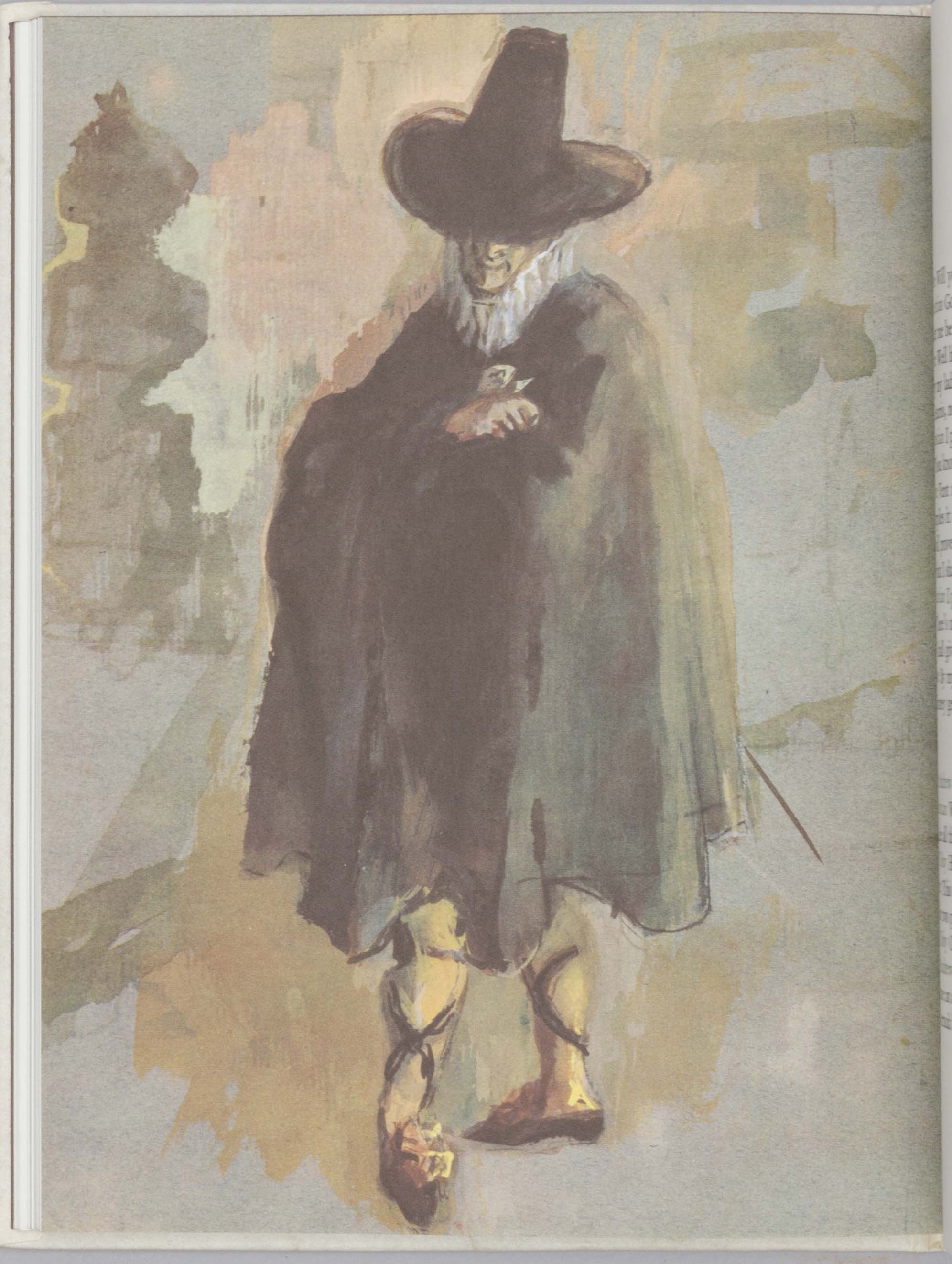
London: Folio Society, 1966
[S.L.] III [Folio Soc. – 1950]
With the demise of the mediaeval miracle and morality plays, the English Reformation opened the way for the flowering of secular drama, culminating in the works of William Shakespeare. Although in the earlier days of the Reformation some religious plays appeared, notably by John Bale and Nicholas Udall, Elizabethan drama was almost entirely secular, thereby avoiding the volatility of religious language and the censorship to which Biblical drama was subject. Shakespeare’s plays contain few echoes of the Reformation. Twelfth Night, however, written in about 1601 and first performed at London’s Middle Temple in 1602, takes a crack at Puritans and the plain clothes that they saw as a marker of moral rectitude and confessional identity. In the sub-plot of this play the more roisterous members of Olivia’s household label the surly steward Malvolio as a Puritan. By a hoax, they have him dress in most unpuritanical cross-garters and yellow stockings, in a scene captured artistically by the Victorian Shakespearean illustrator John Gilbert among others. The illustration here is by the twentieth-century fashion illustrator and costume designer Lila di Nobili (1916-2002).